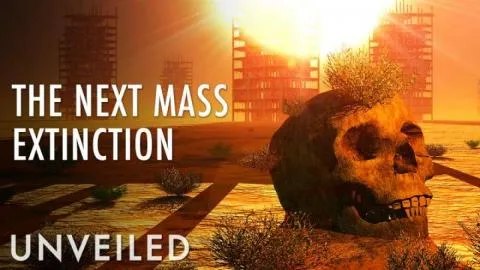What If 50% of Everything Went Extinct?

What if 50% of Everything Went Extinct?
The world is a wonderful place, with at least 8.7 million species of plants and animals. The natural world has always been a source of fascination and beauty, even in an increasingly industrial and urban landscape. But our planet’s biodiversity won’t necessarily be around forever.
This is Unveiled, and today we’re answering the extraordinary question: what if 50% of everything went extinct?
A UN report published in spring 2019 hit us with the harsh truth that our impact on the planet is now threatening 1 million species with extinction. Years of human expansion and overconsumption are ruining animal habitats across the globe and sending us plummeting towards climate disaster. Other studies have estimated that 99.9% of critically endangered species and 67% of endangered species will go extinct in the next century, due to human activity. Unless we change course, we could be left in an increasingly barren world and threatened with extinction ourselves.
The driving force behind the crisis is human land and sea use, as more and more grasslands and forests are cleared for agricultural production, and fish stocks are harvested at unsustainable levels. Over the last half a century, we’ve lost half of our wildlife, be that through the destruction of their natural habitats, overhunting, or the introduction of invasive species that wipe out vulnerable, endemic ones. Climate change is set to make the situation even worse. In February 2019 it was reported that the Bramble Cay melomys, a type of rat native to Australia, became the first mammal to go extinct because of human-induced climate change.
But as pressing as climate change is, there are other reasons we could face such an extreme scenario. Scientists have warned that we’re currently witnessing the SIXTH mass extinction event in 3.5 billion years of life on Earth, and the previous five obviously didn’t have anything to do with humans. The worst was the Permian-Triassic event, also known as the “Great Dying”, which saw over half of all biological families go extinct, for reasons that are difficult to ascertain over 250 million down the road. It may have been due to volcanic eruptions. Better understood is the extinction event that killed the dinosaurs, caused by an asteroid crashing into what’s now the Yucatán Peninsula in Mexico. Another enormous meteor could sail our way, or the Yellowstone Caldera could finally blow. We could even wipe ourselves out with nuclear warfare if we decide climate change isn’t moving quickly enough.
Whatever the cause, in the short-term, we’d be met with an ecological crisis on a scale unprecedented in human history - assuming we were part of the 50% of species that survived. Even with some time to prepare, an extinction as vast as half of Earth’s species would have devastating results. The ecosystem would be thrown completely out of balance. We could lose our major pollinators, leaving plants unable to reproduce. Species that rely on symbiotic relationships, such as clownfish and sea anemones, would be at a loss without their partner species. Food chains would be completely disrupted, with predators species dying off without their natural prey, while other populations exploded without predators to keep them in check. The same would be as true in the oceans as on land. If krill species went extinct, for example, the effects would ripple up and down the entire marine food chain.
This would drastically cut down our food supply, regardless of dietary preferences – vegans would be in just as much peril as meat-eaters. If our own population was left initially intact, the price of food would skyrocket, leaving the poorest among us unable to feed themselves - in turn affecting agricultural production and leading to a vicious cycle.
The loss of 50% of everything would be a global disaster. But in the long-term, that doesn’t mean life wouldn’t survive in some form. It just might not include us. Mass extinctions are part of our planetary history. Eventually, the Earth can and will recover from such ecological disasters, including climate change or even nuclear warfare. It’s recovered from apocalyptic situations before. Researchers estimate that it would take between 3 and 5 million years after another mass extinction event for the Earth to return to current levels of biodiversity, in a best-case scenario. It would take another 2 million years on top of that to reach the levels before humans came onto the scene at all. To us, this seems like an almost infinite stretch of time, but in the grand scheme of our 14-billion-year-old universe, 5 million years is nothing at all.
One day, something will happen to threaten the planet and our place on it. By the time the next mass extinction event rolls around, if we’re not in the middle of one already, we might have moved on to other planets and places, ensuring our longevity even if planet Earth becomes a wasteland. No matter what happens to us or what chaos we bring, the planet will survive, and humans will one day be a tiny footnote on the planet’s vast history. Even if we did survive and leave, we would probably be an utterly unrecognisable species in 5 million years’ time, completely alien even to ourselves.
There is no doubt it would cause global devastation, cutting down food supplies and other vital resources so much that it could be the last nail in humanity’s coffin; but the Earth, at least, would recover. And that’s what would happen if 50% of everything went extinct.
Sign in
to access this feature